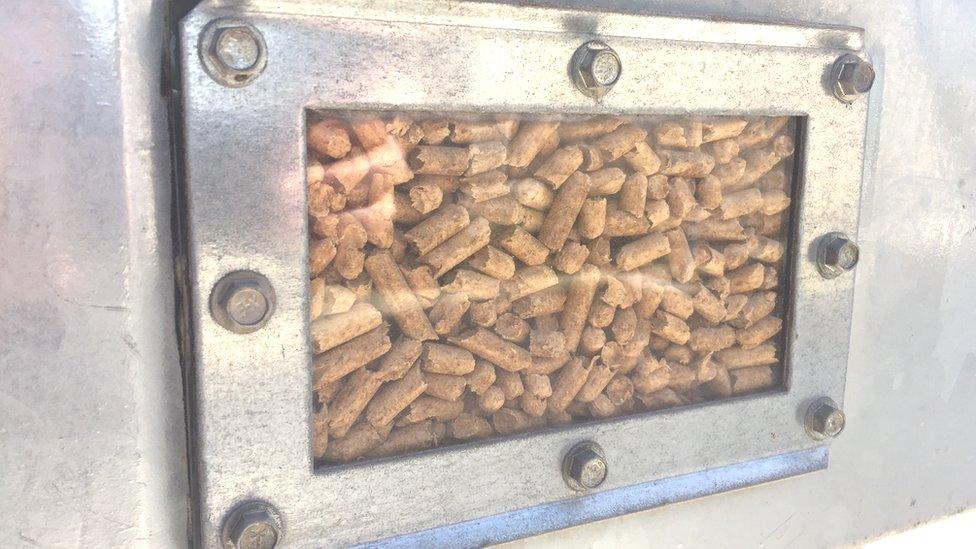RHI officials 'showed crass incompetence'
- Published

Claimants on the RHI scheme are challenging a decision to reduce tariff payments
Officials who ran the flawed Renewable Heat Incentive (RHI) scheme showed "crass incompetence", a barrister for its claimants has told a court.
He was speaking during a legal challenge on a decision by Stormont's Department for the Economy to reduce the scheme's tariff payments.
The barrister said officials appeared to have forgotten Treasury advice that it would not pay for any overspend.
It had warned any overspend would come out of Northern Ireland's block grant.
The lawyer said the failure to heed this warning had been the result of "crass incompetence" on the officials' behalf.
The scheme was set up in 2012 to encourage claimants to switch to renewable heating sources, but a lack of cost controls meant expenditure threatened to spiral out of control.
'Flew in the face' of promises
When the budget was exhausted, tariffs were dramatically reduced by the Department for the Economy.
The decision to amend the tariff payments is being challenged in court by the Renewable Heat Association, which represents about 600 RHI scheme claimants.
Its legal representative said changes to the scheme's tariffs "flew in the face" of promises by the Northern Ireland Executive that payments would be guaranteed in the long term.
The commitment was in a letter to banks by the then enterprise minister, Arlene Foster, in 2013.
She encouraged them to lend to businesses investing in biomass boilers.
In the letter, she promised subsidy levels would be "reliable and long-term".
'Good faith'
The barrister told the court that a commitment to a long-term tariff in the original regulations, backed up by the ministerial letter to the banks, amounted to a "cast-iron guarantee" to the recipients.
"This is what the department now seeks to resile from because it was overtaken by events," he added.
"We say the events are entirely of their own making - if this was a private company doing this in court you wouldn't give them the time of day."
The Renewable Heat Association has said that businesses entered a legitimate government scheme in good faith and based investment decisions on the original subsidy returns.
It claims that some of those companies may collapse, now that the tariff has been drastically cut.
But the Department for the Economy has said that those on the scheme were getting "supernormal" profits never envisaged under its terms.
'Not our fault'
That is because the boilers were running for much longer than had been expected by those who drew up the scheme.
Boiler owners say it is not their fault that flaws in the scheme were not identified earlier, and they believe they should not be penalised for that oversight.
The department has said the changes are in the public interest.
Regulations implemented in April 2017 introduced a tiered tariff and capped payments for all scheme participants, drastically cutting the level of payouts.
It has been suggested that they brought the projected overspend in 2017-18 down from £28m to £2m.
Officials had claimed that, without the amendment, the original tariff would have led to a projected overspend of £490m over the 20-year term of the scheme.
That would have had to be covered by funds from Northern Ireland's block grant from Westminster.
The boiler owners have disputed the overspend figure, claiming the non-accreditation of several biomass heat and power plants would have significantly reduced it.
- Published18 September 2017

- Published7 November 2017

- Published23 October 2019
